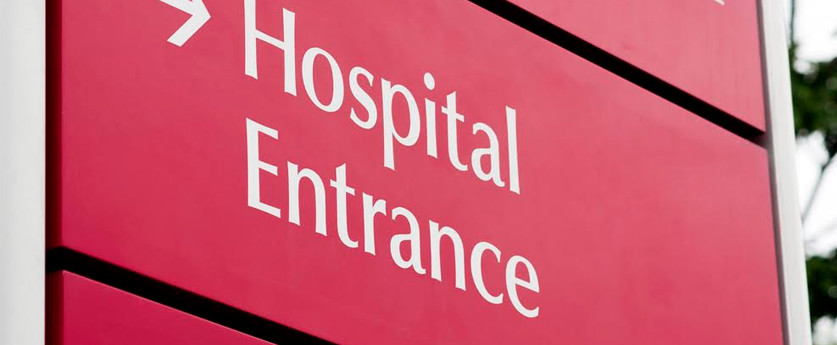COVID-19 & Cancer
Can I get the COVID-19 vaccination if I have cancer?
The short answer is yes. People who are immunosuppressed from anti-cancer therapy should be prioritised for vaccinations. However, there are some situations where your oncologist may suggest that you avoid one particular vaccine, or all vaccines, due to your particular situation. This is a rapidly evolving situation, and advice may change over time as new evidence emerges.
It is best to discuss getting the vaccination with your doctor or oncologist, in case there are any risks of anaphylaxis or other adverse reaction.
For more information about Covid-19 & cancer, please read the Medical Oncology Group of Australia’s position statement on COVID-19 vaccination in patients with solid tumours and talk to your GP or oncologist.
Will my treatment be affected by COVID-19?
Generally, your treatment will not be paused due to COVID-19. However, you may be subject to changes in delivery or schedule due to lockdowns and changes in government restrictions. As mentioned above, the situation is liable to change quickly at times, but your treatment team will endeavour to keep your treatment on track.
To learn more about how Covid-19 & cancer may affect you, please consult our article on the subject.

Questions about Cancer
What is staging?
Staging is the process of determining how much cancer is in the body, and how far it has spread. It is used by doctors to help determine the best approach for dealing with cancer, since cancers at different stages require different types of treatment. Cancer staging is also used to help predict the course it may take and the overall outlook on treatment.
What are the five stages of cancer?
Stage 0 is no cancer, only abnormal cells with the potential to become a cancer.
Stage 1 cancer is a small presentation which is localised to one area and has not spread to the lymph nodes or other parts of the body. Stage 1 is sometimes called early-stage cancer.
Stage 2 and stage 3 indicates larger cancers or tumours that have grown more deeply into the nearby tissue. The cancer may also have spread into the lymph nodes, but not to the rest of the body.
Stage 4 is where the cancer has spread to other organs or parts of the body. It may also be called advanced or metastatic cancer.
Are all tumours cancer?
Not all tumours are cancer. Tumours can be both benign (non-cancerous) or malignant (cancer). Since it’s difficult to tell which category a tumour falls into without investigation, it’s best to see a medical professional as soon as concerns arise.
What cancer questions should I ask my Oncologist?
- What specific type of cancer do I have?
- How will this cancer affect me?
- Can my cancer be cured or managed?
- What tests will I need?
- Who will be my point of contact regarding my cancer treatment?
- Who will explain my test results with me?
Remember to ask your GP for a referral to Hunter Valley Oncology.

Cancer Treatment
How long will it take to get my test results?
After a tumour biopsy, it normally takes at least 2 to 3 days to get the results. In more complicated cases, it may take up to 14 days to receive your results. Routine blood tests are usually available within 24 hours, although specialised tests will typically take longer.
However, it’s important to remember that a lengthy wait time doesn’t necessarily indicate an unfavourable result. Test results can be held up for a variety of reasons, and some tests can take longer to perform. Your doctor will contact you when your results are available.
Can I continue to exercise during treatment?
Yes. Exercise is both safe and possible during your cancer treatment.
Physical activity can improve your functionality, muscle strength, and mobility during your treatment. Exercise can also help improve your energy levels, mental health, and can help you manage stress. As a result, we recommend maintaining a healthy level of activity throughout your cancer treatment. If you have concerns about exercising during your treatment, ask your doctor for advice.
Will I be able to continue working while receiving treatment?
Yes, many people continue to work fulltime whilst they are having their treatment done. Some choose to work reduced hours, or take a complete break from work while they recover. It all depends on your own treatment process and your side effects.
What side effects can I expect from the treatment?
Cancer treatment affects everyone differently, but we can all expect some level of side effects to come into play. Your oncologist will describe the potential side effects with you.
Some of the side effects of cancer treatment may include:
- Anaemia
- Loss of appetite
- Bleeding and bruising
- Constipation
- Delirium
- Diarrhea
- Swelling (oedema)
- Fatigue
- Fertility
- Flu-like symptoms
- Hair Loss (alopecia)
- Infections
- Memory or concentration problems
- Mouth or throat problems
- Nausea
- Nerve problems
- Pain
- Sexual health issues
- Skin and nail changes
- Insomnia
- Urinary and bladder problems

What’s radiation therapy, how does it work?
Radiation therapy is the use of radiation to safely and effectively treat cancer and other diseases. Radiation is often used to restrict the growth of the cancer or ease its symptoms.
Radiation therapy aims to destroy the cells affected by cancer. Healthy cells tend to restore themselves; cells affected by cancer are less likely to recover.
In some cases, patients with cancer will only require radiation therapy. Other cancers might require a combination of radiation, surgery and/or chemotherapy.
Your oncologist or radiologist will explain what treatment will be best for your cancer.
About Hunter Valley Oncology
What can I expect from my appointment at Hunter Valley Oncology?
Our first goal is to get to know you as a patient. We ask questions to find out about the impact of your cancer, your lifestyle, your interests, and your state of health to help us recommend the best course of action.
We conduct a thorough examination, identify your cancer, and see how far it has progressed. We will also discuss your concerns and treatment options, and decide on an appropriate treatment process in consultation with you. We aim to keep you fully informed throughout the entire process.
Where will I receive my treatment?
Both Dr Rob Paterson and Dr Nick Zdenkowski consult at our practice in East Maitland. We also see patients at Newcastle Private Oncology Centre, Newcastle Private Hospital, or at the Clark Suites in Gateshead, NSW. There are day oncology centres where chemotherapy is administered at each of these locations.
How soon will I be able to schedule an appointment?
Patients with urgent referrals will typically be able to get an appointment within 48 hours. All other patients are triaged as appropriate to ensure the best possible care for all patients.
Is there parking on site?
Yes, there is off-street parking near our practices.
What if I don’t have private health insurance?
We are happy to take clients on a pay-as-you-go basis. This maybe a more suitable arrangement for patients who do not require chemotherapy infusions. However, non-insured rates are available for treatment in the day oncology centre.
Please speak to reception about our costs, payment plans, and requirements.
What do I need to bring along to my consultation?
Bring along your referral letter from your GP, your identification, a list of your current medications, and any additional information you might have that will assist our medical team. If you have copies of scans, or any results, it is helpful to bring those along as well. You can also bring along a support person. To learn more about what to expect at your first appointment, visit our patient information page or download our what-to-bring checklist.
